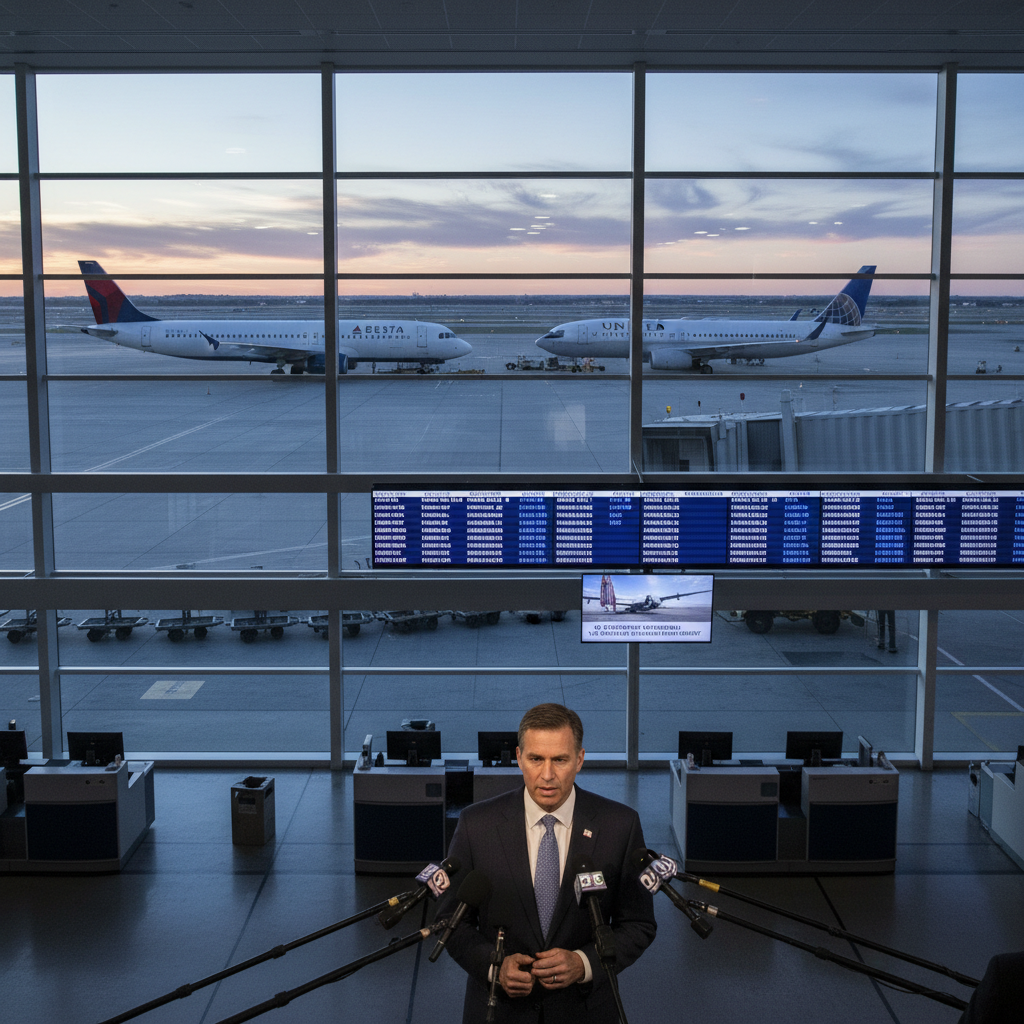Physical Address
304 North Cardinal St.
Dorchester Center, MA 02124
Physical Address
304 North Cardinal St.
Dorchester Center, MA 02124
Global aviation news tracker
Global aviation news tracker

A federal shutdown is snarling U.S. air travel and squeezing air traffic control operations nationwide.
On October 27, 2025, U.S. Transportation Secretary Sean Duffy warned that the US government shutdown is causing widespread flight cancellations and delays by reducing staffing at key air traffic control (ATC) centers. The shutdown — now the second-longest in U.S. history — has affected commercial and cargo operations at major hubs, with travelers told to expect continued disruption until lawmakers reach a deal.
Reduced personnel at ATC facilities has stretched controllers and support staff, increasing the chance of flow restrictions, ground holds and longer taxiing times. The Federal Aviation Administration (FAA) manages those ATC centers, and airports from coast to coast have reported intermittent operational slowdowns tied to the staffing shortfall.
Airlines are responding with targeted cancellations and schedule adjustments to avoid irregular operations; some carriers have proactively reduced frequencies on less-profitable routes. While operators vary their responses, passengers flying this week should expect more last-minute changes than usual and build extra time into travel plans for missed connections.
For affected passengers: verify your flight status on the airline’s official app or website, contact customer service for rebooking, and monitor airport advisories before heading to the terminal. Travelers with tight connections should consider alternate flights earlier in the day or flexible tickets where possible.
Until the shutdown ends, FAA-coordinated ATC operations will remain under pressure; industry sources say the situation will stabilize only after staffing returns to normal levels once federal funding resumes. Officials encourage passengers to remain patient and to plan for extra time at security checkpoints and gates.